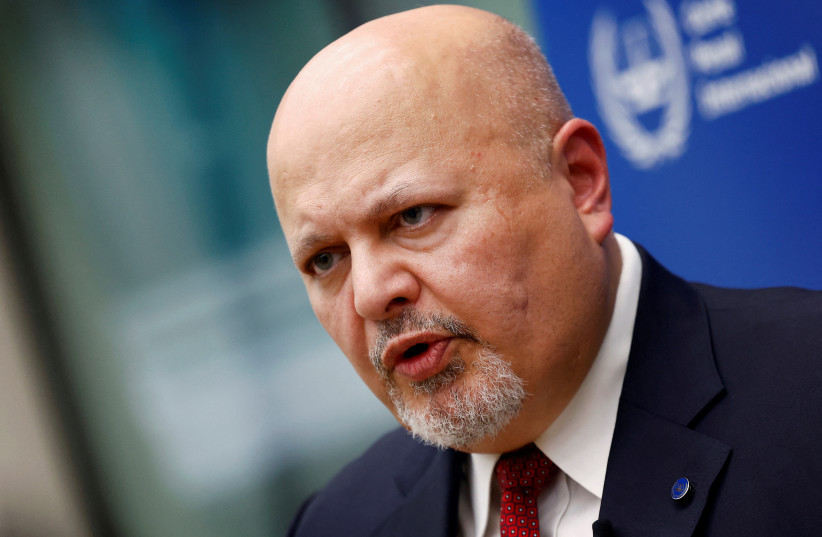In recent years, and especially over the last 16 months with the onset of the judicial revolution, there has been an intense struggle in Israel over its image. Will it become a conservative country with a distinctly nationalist-religious tenor, or will it continue to be a liberal democracy?
The arrest warrants sought by the chief prosecutor of the International Criminal Court (ICC) against the Israeli prime minister and defense minister will undoubtedly impact this struggle.
They might cause the silent majority to despair of the fairness of the law and Western countries and take the position that in such an international environment it is better to be strong than to be law-abiding and righteous in the eyes of the world.
On October 7, the State of Israel was ensnared into an existential war. Hamas butchers infiltrated Israel, committing acts of rape and murder. Thousands of rockets were fired at Israeli cities. The attack was joined by Israel’s enemies from the north and east, and the situation was dire.
IDF fully compliant with international law
But even amid this chaos, when the blood was boiling, the laws of war were taken into account when preparing the battle plans and open-fire policy for Gaza and the North. Entry into Gaza was delayed to allow the evacuation of civilians, and humanitarian aid reached the evacuees from the earliest stages. This policy held as the fighting progressed.

From the outset, the IDF has acted under the legal guidance of the International Law Department of the Attorney General’s Office and other governmental legal advisers and is fully compliant with international law. This has been unwavering despite incendiary statements and protests from the extreme Right, which argued that the war should be fought without these constraints. Unfortunately, it didn’t matter.
THE ICC prosecutor’s filing has severe legal and international consequences for Israel, but it is expected to have an equally serious effect on Israel’s character as a liberal state, and on the ability of the liberal camp to succeed in the struggle over the country’s image.
For decades, the Israeli justice system – including the Supreme Court and the offices of the State Attorney and the Attorney-General – has been the gatekeeper for the rule of law. The strength of the justice system was an obstacle to those who believed it hampered their efforts to promote a conservative-nationalist or Jewish-religious worldview.
This is alongside corrupt politicians whose ability to exploit the state’s resources has more than once been thwarted by the justice system. And so, over the years, the justice system has been villainized by conservative elements on the Right. They perceived the Supreme Court and attorney general as oppositional forces imposing values on the State of Israel that are not their own.
The most acute manifestation of the desire to undermine and alter the nature of the justice system was reflected in the attempted judicial coup. The Israeli government, led by the minister of justice, sought to fundamentally change the constitutional balances in Israel, and significantly hobble the judiciary and its independence. This attempt led to a fierce struggle between Israel’s liberal and conservative camps.
The struggle had a significant ideological dimension, touching on core democratic values. However, among the sharpest arrows in the quiver of those opposing the judicial revolution was a seemingly utilitarian argument. Reinforcing the rule of law is a counterweight to Israel’s problematic policies on several issues, and the judicial review of the Supreme Court, which enjoys significant trust and respect abroad, is a mitigating factor against legal and other criticism of Israel in the international arena.
The ICC prosecutor’s decision is painful, among other reasons, because it expresses a complete lack of confidence in the Israeli justice system. Beyond the harm this inflicts on the international level, it undermines the fight for liberal values and judicial independence.
Most Israelis were not deeply enmeshed in the broader ideological debate. But the threat the judicial overhaul posed to Israel’s democracy resonated with them.
The same has been true in recent months. Despite the overwhelming storm of the psyche, the voice of reason advocated for compliance with international law. Now that this effort has turned out to be insufficient in the eyes of the international community, there is significant concern that Israelis will see the argument in favor of the rule of law and the protection it provides Israel as an empty vessel.
This, in combination with the right-wing conservative sentiment that has increased since October 7, will make it even more difficult to preserve Israel’s liberal-democratic identity. While the struggle over Israel’s image, and its future, must not be abandoned, it must be understood that the day after the prosecutor’s decision, the challenge is even greater.
The writer is vice president of the Jewish People Policy Institute (JPPI) and a senior lecturer in law at the Peres Academic Center.
